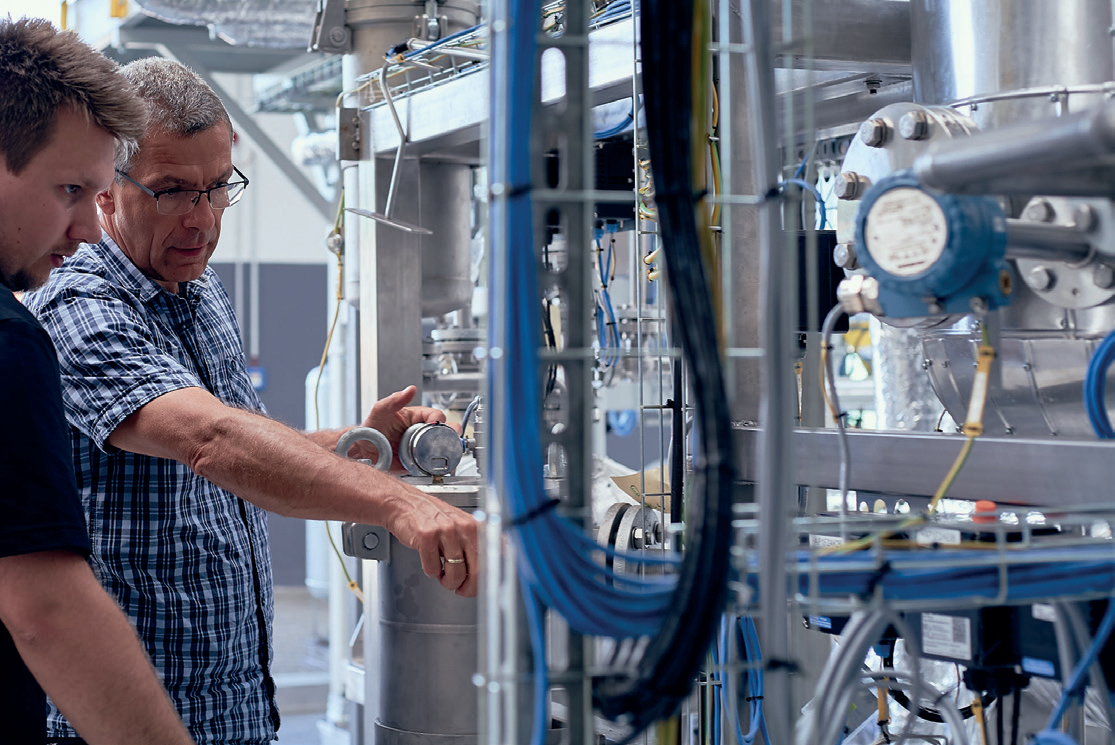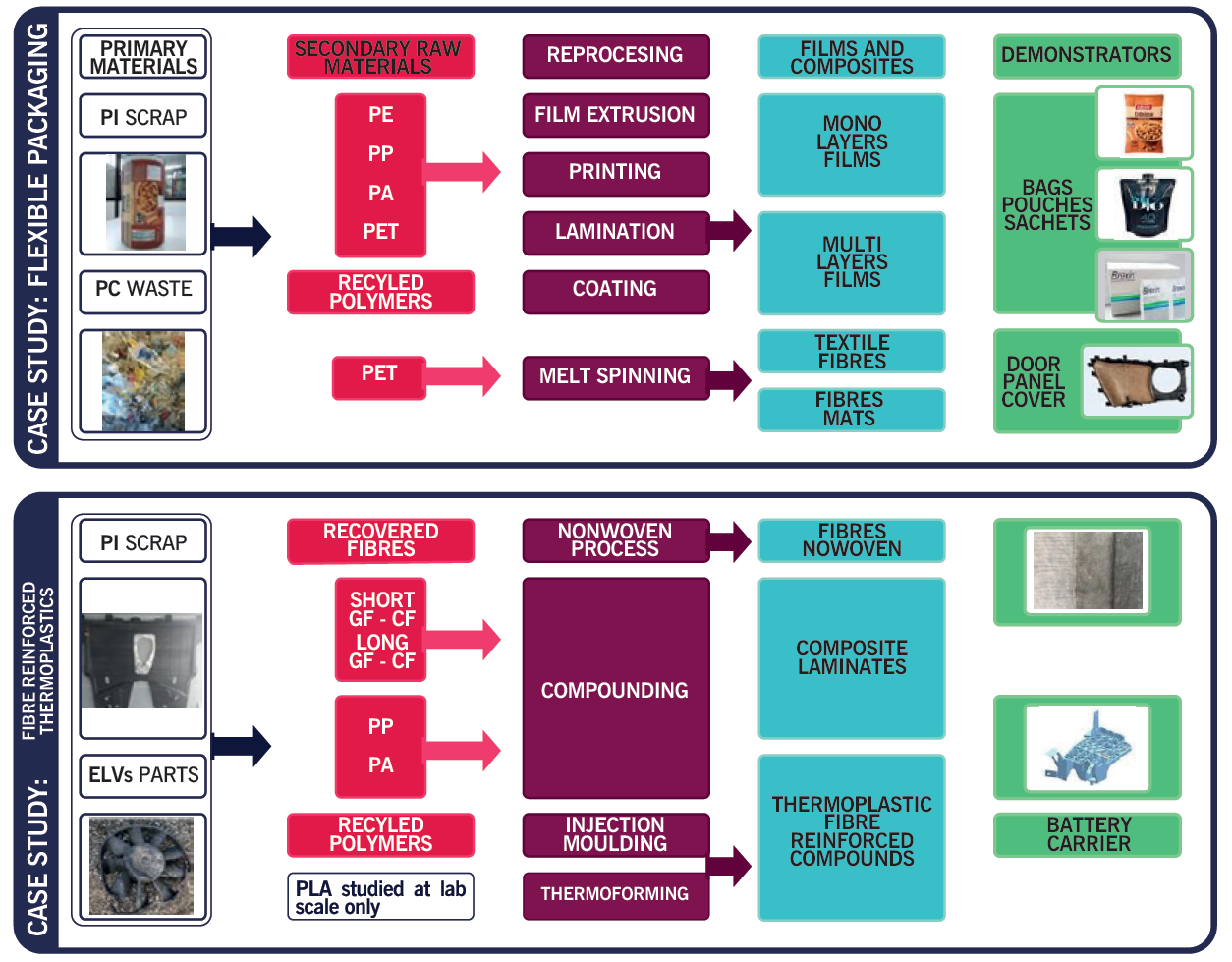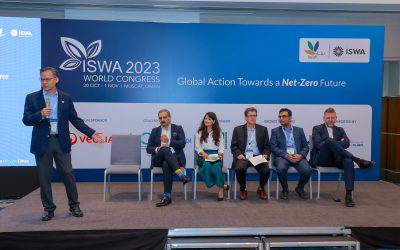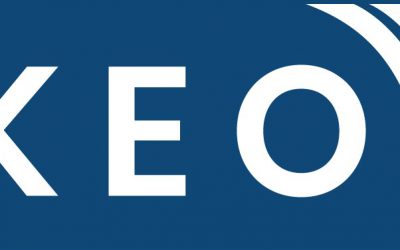After 4 years of collaborative hard work from November 2018 to April 2022, the MultiCycle project has come to a conclusion. The project primarily focused on delivering an innovative recycling pilot plan and demonstrate that the resulting processes from the physical (selective dissolution based) recycling technology is economically and environmentally sustainable for valorizing currently nonrecyclable materials such as multilayer flexible packaging and thermoplastic based composites.
A summary of the achievements of the project is listed below:

Demonstrating the performance of the technology in the pilot plant to handle both composites and multilayer packaging found currently in non-recycled plastic waste mixed streams, recovering high quality recycled polymers and polymer free fibres in good yield for re-use in high end applications.
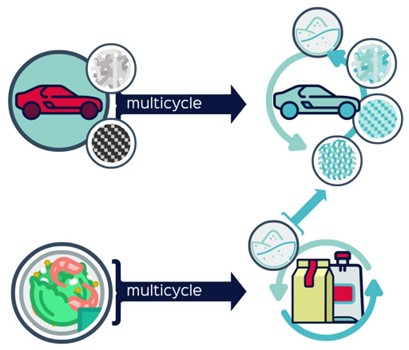
Demonstrating the recovered materials usability in practical applications in both the packaging and automotive industry
1. Assessing the sustainability of the MultiCycle process and its positive impacts on emissions compared with similar processes
The project has produced a Life Cycle Assessment and a Life Cycle Costing. The results have showed that the MultiCycle proposition has a considerable positive impact in terms of emissions compared to the business-as-usual scenario of using virgin materials. The life cycle costing has provided a clear panorama on the costs for the operation of the project. For more information, please contact the project coordinator and technical lead of the project.
2. Promoting impact and exploitation
The project has conducted exploitation activities with a strong emphasis upon commercial exploitation of the results as well as building momentum for adoption in the context of the EU efforts for transitioning to a circular economy.
3. Communicating and disseminating the project including stakeholder engagement and policy outreach
ISWA has been collaborating closely with the project in these efforts by supporting the project to be showcased in several events whilst engaging with stakeholders to get their perspective on the potential of the project to contribute to more circular value chains on both packaging and automotive composites.
ISWA has led the work on the policy outreach and stakeholder engagement sub-task that has led to the production of two position papers for the project for each target waste fraction.
A research project has been conducted by ISWA within its network and beyond to consult and engage with relevant stakeholders for the project and capture their perceptions, views and outlooks for the attending the challenge of multilayer plastic packaging automotive composite plastic recycling.
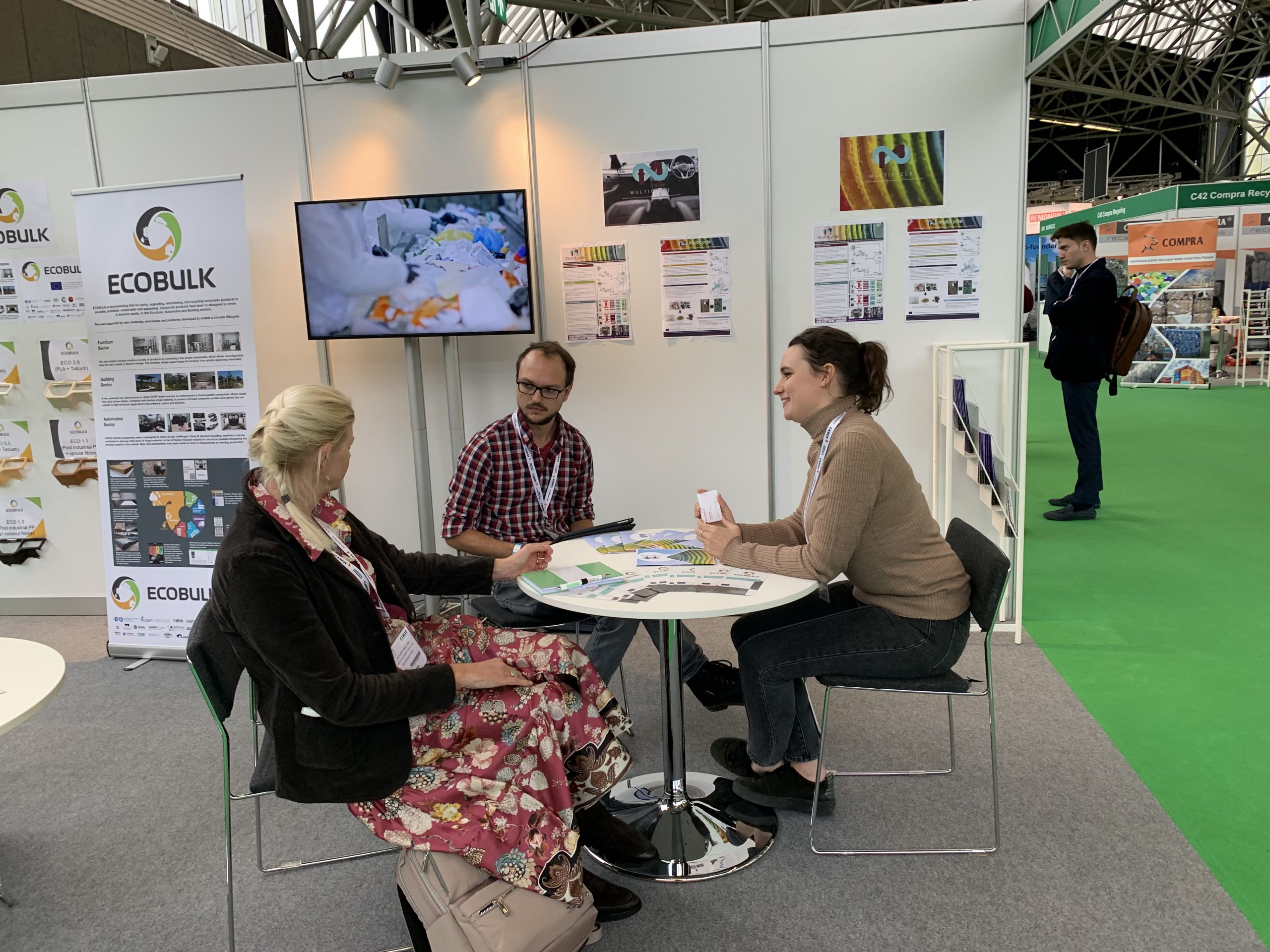
ISWA and Multcycle at the Plastics Recycling Show (PRSE) 2021
From the result of the combination of the research (surveys and structured interviews) and on the basis of the results of the project two position papers & policy recommendations have been produced for each of the waste streams addressed in the project Multilayer plastic packaging and composite automotive plastics.
The positions outlined in the position papers are not official positions of ISWA members or ISWA bodies. The following is a product of a technical research from ISWA and the research team as an outcome of the MultiCycle project in which ISWA participates as a technical partner.
You can find the position papers here.
Next steps in the project would be further testing of waste fractions for assessing feasibility.
After the completion of the project, the pilot plant is open for testing. For more information please refer to the website of the project or contact the project coordinator and technical lead.
Website:
Project Coordinator: Ana Maria Lopez – alopez@iris-eng.com
Technical Leader: Martin Schlummer – martin.schlummer@ivv.fraunhofer.de
ISWA Project Coordinator: Alan Encinas – aencinas@iswa.org

